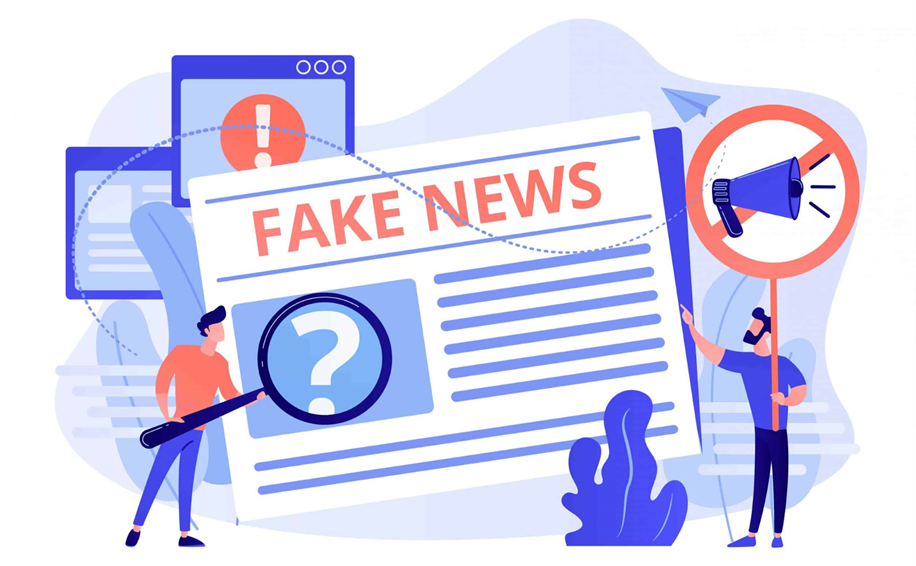On November 4, election and technology policy advocates took part in a discussion hosted by the American Enterprise Institute on what successful online content moderation means amid disinformation leading up to the 2022 midterm elections. They discussed a variety of topics, including content moderation and free speech concerns, potential threats to democracy, and the role of Congress in setting policy.
Spencer Davis, a Founding Partner for the Guadalupe Strategies, discussed the difficulties of content moderation online whilst also creating a healthy and fair digital space that abides by First Amendment rights.
“I don’t think we can just throw up our hands and say, ‘everything out there is valuable, content moderation is too hard and so we should allow all speech’ because it will create instances of radicalization and lends itself to conversations about terrorists being activated and radicalized and it is not worth it.”
Following Davis’ point, Quinta Jurecic, a Fellow for Governance Studies Program in the Brookings Institution, spoke on the complexity of effectively putting content moderation laws into practice:
“[Section 230] is a really complicated network of laws, and jurisprudence built up over time of really difficult fine-grained questions about ‘how do we moderate content in language that perhaps we don’t speak and how do we hire enough people to fine-tune algorithms to filter out this and not that?’
Jurecic emphasized the obstacles that arise when attempting to execute highly technical and specialized moderation of online content. “It becomes quite hard to move from that very abstract level down to the nitty-gritty of ‘how are we going to implement this and implement it in a way that means I can still use the social media platforms to communicate with my friends and it won’t be drowned out in spam?’”
Samir Jain, former Senior Director for Cybersecurity Policy in the National Security Council, questioned what person or entity should be in charge of online content moderation:
“There is great dissatisfaction in how particularly the big social media providers are handling these issues [of content moderation] and also a feeling that, why is it that Elon Musk or Mark Zuckerberg should be the one exercising this much influence over our public discourse, which is what they do. No one elected them and it doesn’t seem like they are the right key decision makers. There are key dangers in the government regulating which is why we have the First Amendment here in the United States. So, who does the regulation and how do you do that? That’s the big question.”
Jain went on to comment on how moderation of online spaces impacts free speech, saying “There is a sort of misunderstanding – I heard it from Elon Musk several times – that if you allow everyone to speak, then that is free speech at large. It’s far more complicated than that. Part of what goes on online is significant harassment, trolling, negative kinds of behaviors that drive people off and make it so that they can’t speak online.” Jain concluded, “If you allow everyone to speak, that doesn’t necessarily mean everyone will have an equal voice because there will be people who as a result of other people’s speech are forced off-line or don’t feel free to speak. Having rules in place is actually necessary to create a community in which everyone actually has an equal right to speak.”
Quinta Jurecic correlated Jain’s argument to real-life consequences, claiming, “Several news organizations have put out information that women of color running for political office receive by far more threats, abuse, and harassment online and that is a great example of how some speech can drown out other speech. These are cases in which somebody decides to participate in the political conversation and they want to run for public office and are hit with a wave of speech – abusive, harassing, violent speech – and in some cases decide, ‘I don’t want to be a part of this conversation anymore.’”
The panelists shifted their focus to how unmoderated online content could pose a potential threat to democratic institutions. Spencer Davis was cautiously optimistic, citing the growing belief among Americans that national elections are conducted unfairly:
“Peoples’ trust that their vote counts is actually very solid. If you ask people generally, ‘do you think elections are fair in the United States?’ you will not get a confidence building answer. But if you ask them ‘what is your confidence that your local elections are run well?’ it is always above 85% that was true in October 2020 and November 2020 and it is true as of a couple weeks ago when Pew Research asked the question again. I think in that specific situation, there is limited ability for disinformation to change people’s minds about how their votes counted.”
Samir Jain expressed a more pessimistic point of view:
“I do think there is a broader skepticism fed by some of our political leaders about our election integrity and if we ever get to a point where a big chunk of Americans feel that if their candidate or party has lost then the election was illegitimate, that is a fundamental premise on which our democracy is based. I feel like we may be getting to a point where there is a big chunk of people who if their candidate loses, they just think that means the election is illegitimate. I think disinformation and misinformation we see online contribute to that belief. For me, that’s a pretty scary proposition.”

